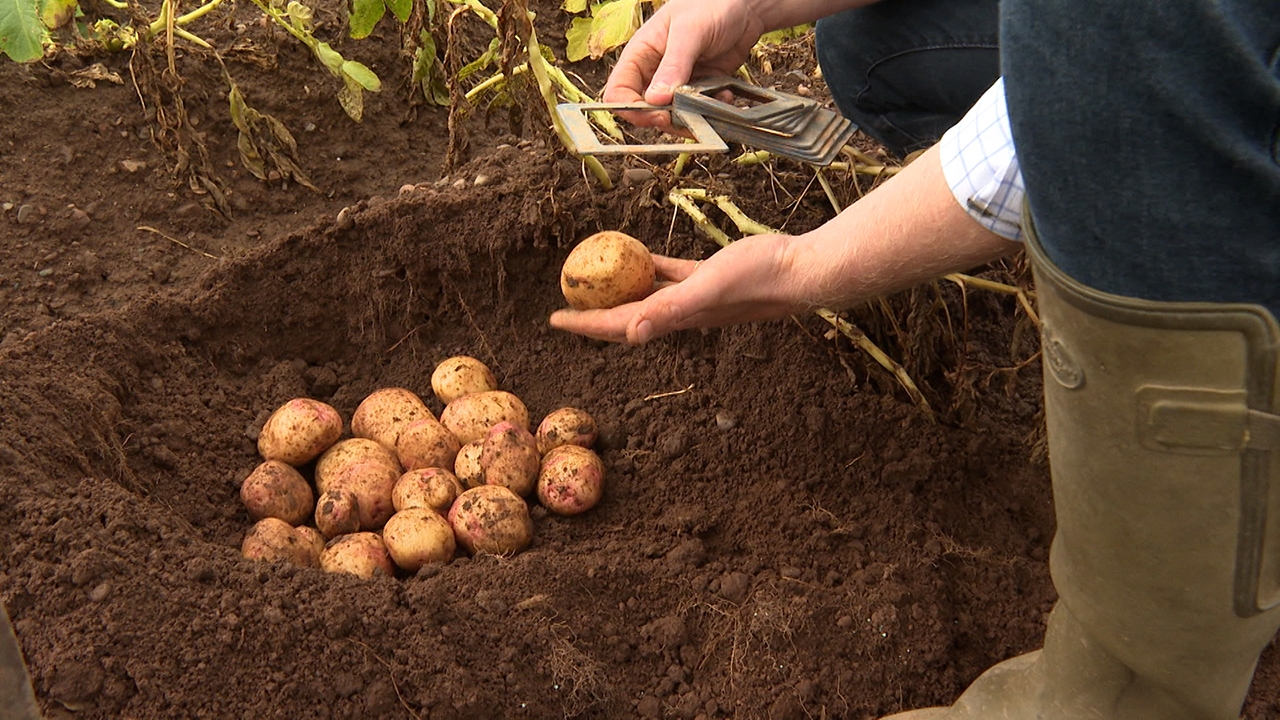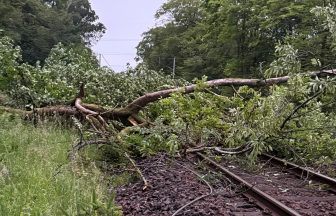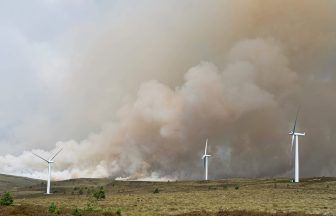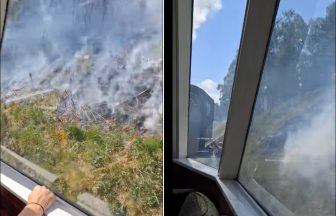Experts have warned that potatoes may stop growing in Scottish soil within the next few years due to climate change.
Farmers in parts of the country have experienced the worst drought they have seen in decades.
Ben Shoreman said his farm in East Lothian had received less than a third of its usual rainfall during the summer months.
“It’s been soul destroying,” he said. “It doesn’t cost us any less to put it in or any less work or hours.
“We’re now looking at whether we can supply contracts and can we actually afford to put them back in the ground next year, because it’s a double whammy.
“If we can’t, then realistically we’re looking to buy in produce to resell, which isn’t good for the business or food miles, or anyone, as it puts up the cost.”
As farms struggle to meet their quotas, it is predicted that the cost of potatoes could double in the coming months.
Carlo Crolla’s fish and chip shop in Musselburgh, East Lothian, has been in his family since 1974, but his supplier has warned that he can expect to see much bigger bills.
Earlier this year, he increased his prices due to the spiralling costs of oil, fish and energy, but feels he can’t do that again.
“Customers won’t pay those prices when they’ve got all their own problems with energy pricing and things like that, so it’s very scary,” he said.
“The margins are very small already and it’s going to get a lot worse. If it came to a point where I couldn’t use the produce I wanted to use, I would probably close my doors.”
Experts warned that this year’s weather was not a one-off, but a sign of things to come.
Lesley Torrance, from the James Hutton Institute, said: “We’re expecting hotter and drier summers. There’ll be many more plant-heat stress days, as many as 60 by 2030 – that’s only eight years away.
“It could dramatically affect the types of crops we can grow and where we grow them. We might still be able to produce some potatoes in the north of Scotland, but we really need to do something now.”
Potatoes require a lot of water to grow. Currently, many farms take water from nearby rivers to irrigate their crops. However, this practice is banned in periods of drought, further compounding the problem.
“We’re looking at ways to mitigate the risk in the future by putting in reservoirs, putting in more bore holes and infrastructure to make things more efficient.” says Mr Shoreman.
“It’s investment but equally, if we haven’t got the money from the sales, it’s a struggle to bank on putting out a huge capital expenditure on infrastructure.”
The Scottish Government said tackling climate change was one of its “key priorities”.
Rural affairs secretary Mairi Gougeon said: “We are very mindful as to the hardships some producers will face as a result of the water scarcity situation and we have taken the action we can to mitigate this where possible at the margin, and will continue to monitor.
“We will learn from this situation and develop our response for future occurrences and will work with producers and operators to promote improved efficiency in use of water to improve resilience to conditions of water scarcity.
“Over the summer officials have been working closely with SEPA to monitor the water scarcity situation. Multiple rivers reached a level of ‘significant scarcity’ due to the dry conditions. In line with the National Water Scarcity Plan, SEPA took action to temporarily suspend abstraction licences within the affected catchment to protect the water environment.
“This is the first time in Scotland abstraction licenses have had to be suspended due to water scarcity and shows the seriousness of the situation. This harm is as a result of climate change, and it is one of the key priorities of this government to combat climate change.”
Follow STV News on WhatsApp
Scan the QR code on your mobile device for all the latest news from around the country
























